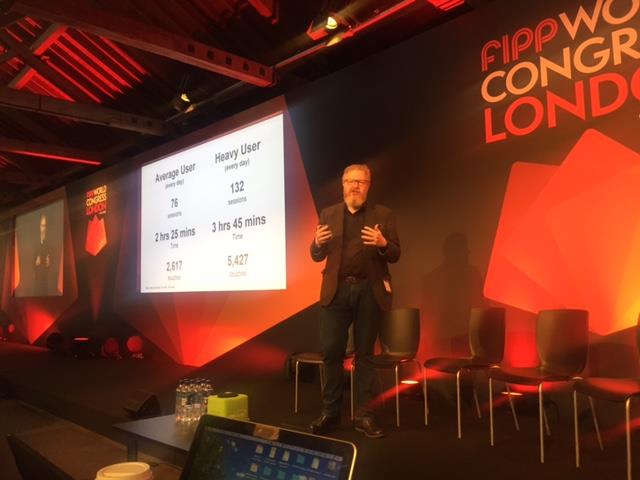Four tips for responding to changes in the ways your consumers behave

With these changes having profound implications for publishers, Ross Sleight, Chief Strategy Officer, Somo, set out to provide publishers attending the 41st FIPP World Congress in London with tips on how best to respond to consumer change.
The smartphone has only been around for under a decade yet its impact has been huge. Ross quoted figures that showed that the average person uses their phone for two hours and 25 minutes per day. For a heavy user that is three hours and 45 minutes.
As Ross argues “there is a definitive difference in how behaviour happens, and that’s what need to understand. It is not going to go away.”
Ross then ran through four areas that he thinks are interesting in behaviour changes, while advising publishers how they should respond.
1. Be mindful to your end customers
Ross argued that smartphones have overtaken our lives, and he quoted the concept of the Smombie (smartphone zombies). It is a major issue for people. 40 per cent of people feel that smartphones have taken over their lives, 56% of millennials feel they use smartphones too much.
Ross believes that they want to try and change their behaviour. He quoted figures that 74 per cent of people want to moderate smartphone usage.
Ross’s advice to publishers is to “be mindful of what your customers want – we can’t keep bashing them with things and expect them to engage.”
2. Be easier, be faster with what we do
Ross reported that the average time for a mobile page to load is 22 seconds. According to Ross over half of smartphone visitors will leave a page that takes more than three seconds to load.
“Speed is vital,” argues Ross. “We have an attention deficit and get very frustrated when things don’t load as quickly as possible. It is no wonder that fast loading platforms like Google’s AMP are creating greater engagement.”
Ross exhorted publishers to “think of customer first rather than monetisation.”
To illustrate this he talked about the growth of Appathy (fatigue with apps) and the way that for most users 96% of smartphone time is spent on 10 apps. Mainly Facebook, Google YouTube, Instagram etc
Ross said though that “engagement no longer confined to apps. The opportunities to engage outside of apps is massive, for example, widgets, notifications, in app messaging, personal assistants, social and news aggregators etc. Ross highlighted The Skimm – a US startup that enables you to place content in a calendar
He also cited how voice is becoming a real opportunity in that 20 per cent of Google’s queries are voice searches and 55% of millennials are using Google voice for searching. Ross mentioned Onet in Poland, which will read you the news story. Voice is becoming more important due to the proliferation of intelligent speakers in homes and cars – audio strategy is very important.
3. Be relevant
Ross said that “the big issue is that there is so much content out there that we need to have proper filters. At the moment this means that consumers have to become editors themselves. They are juggling multiple screens, multiple editorial judgements and multiple algorithms.”
Ross said that the panacea for this was to “bring things which are more relevant to me closer. For example cooking content – if I am a vegetarian make sure the veggie stuff is close, but push meat stuff further away.”
Ross also praised the Quartz app which is interactive, but includes filters and personalisation. Another example is Revl, the entertainment guide which filters through the opportunities.
4. Be wow
Ross’s last point was that variety is important to consumers. They like to be first, be wowed and introduced to new experiences.
For example Ross believes that Augmented Reality will be a key driver which we will see opened up via Apple and Google’s AI kits.
Similarly Virtual Reality. Ross added that The Guardian has given away 97,000 Google Cardboard kits to offer consumers access to its immersive realities.
More like this
Freedom should be at forefront of publishing – FIPP World Congress chairman
When opposites are ‘brilliantly successful’ in publishing
Building B2C and B2B subscription revenues into the dominant revenue stream
The way Facebook is working for publishers to fall in love with them
UX as a competitive brand advantage: don’t get carried away by all the bells and whistles!







